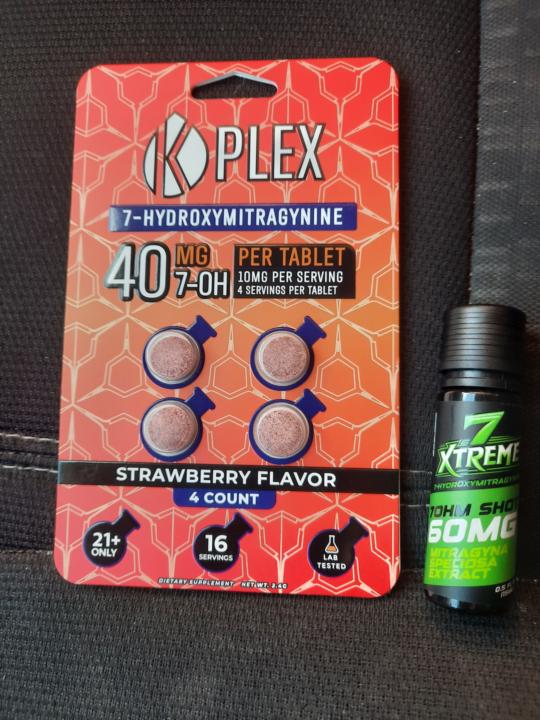Activity
Mon
Wed
Fri
Sun
Jan
Feb
Mar
Apr
May
Jun
Jul
Aug
Sep
Oct
Nov
Dec
What is this?
Less
More
Memberships
The Vigilant Family
34 members • Free
3 contributions to The Vigilant Family
Contrast
Based off of the last video, what do you all think of this one? Backstory: Young girl working at the counter is harassed and threatened by a customer. She calls her Dad for help, he comes in the door, and you can see what happens from there. He did not post the video, it was an unrelated bystander who took and posted the video.

5 likes • Nov 13
A couple was in the background and they skedaddled out of the store as soon as dad came. That's what I would have done, before dad even got there - and depending on what led up to this 19 second clip, may have called the police as soon as I got outside. It's hard to make a determination with such a short bit of the event, especially when we don't know what kind of harassment is going on and what led to it. Did the counter girl and harrassing guy know each other previously? Who else was behind the counter? Did someone already get on the phone to call for help? What happened after this clip ended? It looked like dad was going in for another shot at him. I actually thought, when Dad hit the guy, "good for him" but that could go bad fast - is the other guy there an accomplice? Businesses should run through what if scenarios with their employees. Why did she call dad and not 911? Just a bunch of random thoughts.
Have You Heard of the Gas Station Heroin?
What is it and what’s the problem? The leaves from a tree native to Southeast Asia, Kratom is a herbal medicine with effects similar to opioids. It is most often found as a powder in the United States, in capsule or tea form and more recently, and concentrated extracts. 7-hydroxymitragynine, or 7-OH, is a highly potent compound, semi-synthetically derived, and added to Kratom products in concentrated form. And much like any opiate, it is also highly addictive. It’s how we see caffeine energy drinks that are in these tiny containers with extremely high levels of caffeine. People can end up with heart attacks if they drink several of those, whereas you would have to drink a significantly higher amount of coffee to get into health problems. Kratom and it's 7-OH derivatives are currently unregulated in the United States and being sold in nearly every gas station convenience store and head shop in America. Hence the “Gas Station Heroin” tag. Using these products and combining them with other substances (legal and illegal) have been linked to possible overdoses and deaths. A new paper just published looking at 551 deaths in Florida where 7-OH was detected post-mortem. In 93.5% of these cases, at least one other chemical was found in the system. The County of Los Angeles Medical Examiner recently identified ten fatal overdoses associated with 7-OH ingestion in LA County residents between the ages of 18 to 40 years old. https://ktla.com/news/local-news/deadly-7-oh-kratom-overdoses-confirmed-in-los-angeles-county/ The picture is of two out of about fifty different products containing concentrated 7-OH from our local gas station. Cheap, easy, readily available, no questions asked, flashy/effective marketing, and highly concentrated. Do you know what your kids are buying? Stay Safe - Stay Vigilant, S&J The Vigilant Family

6 likes • Oct 14
I did not know this, and I do know someone who drinks various products like this. Will share the info. UPDATE: I spoke to the person I know who drinks these drinks and he indicated he stopped several months ago - he said, and I quote, "and they are addictive as shit!" (which in 30 year old speak means very!)
School Shootings & What Can Be Done - Part 2
This is Part-2 on the Georgia school shooting series where we will discuss what we can do to prevent the next one from happening. On September 4, 2024, a mass shooting occurred at Apalachee High School near Winder, Georgia. The suspect, 14-years old, allegedly shot 13 people. Two students and two teachers were killed, while nine others were injured. We've already discussed some of the questions that should be asked and answered when one of these incidents happen. But, what can be done before the next one occurs to prevent the trauma and loss of life and to prevent the need put more guns in the schools? A significant number of the murderers who commit these crimes have been reported to the police, FBI, DOJ, and so on, all of whom have failed to either recognize or marginalized the the threat to the point where little or nothing was done. The current system has been a failure. What can be done to fix the protocols to increase the chances of stopping the next tragedy? We believe that there is a solution. What if law enforcement agencies approached these calls from a different perspective? What if they used a team response to prevent the murders and get the potential murderer the help they need before they cross that line? What would that look like? How could that happen? Part of the problem is that there is no standard procedure for handling these types of calls, leaving a patchwork of responses coupled that with a lack of communications within the individual departments, schools, the community, and state and federal law enforcement. We suggest a standard set of procedures that law enforcement can put in place on a national level and a team response to these and all mental health calls for service. There should be at least one officer (preferably two) who is trained and assigned to investigate and respond to these types of calls. This officer should be partnered with a board certified mental health professional who specializes in the field, is employed by department, and responds with the officer to evaluate the person in question. Most people can "hide their crazy" for the 10-15 minutes during a normal contact with police. Having an officer who is trained to recognize certain behaviors increases the odds that abnormal/violent tendencies will be detected earlier. But, if a skilled psychiatrist is on scene conducting and directing the interview, they can reduce that time significantly. Based on their initial contact there may or may not be a need for further action.

1-3 of 3


